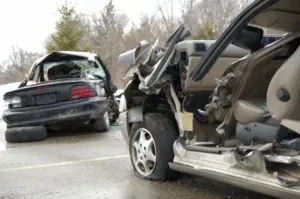Boating Accident Attorney
Looking for a Boating Accident Attorney who will aggressively pursue the maximum compensation in your case?
Many different people contribute to the boating industry, including tourists, fishermen, and locals just looking for a getaway. But like anything in life, accidents can happen, resulting in serious injuries, death, and property damage. If you were injured in a boating accident, you need an experienced personal injury attorney to evaluate your case. Negligence may have been involved, which means you may be entitled to compensation. Here’s more on boating accidents, including what you could do if you or your loved one has experienced an injury.
Call My Rights Law’s Boating Accident Lawyer Today
If you sustained a boat injury, then to make the most of your potential personal injury lawsuit, you should schedule a free consultation with a knowledgeable boat accident attorney who can help you determine how to go about filing a claim or lawsuit. The skilled motor vehicle accident lawyers at My Rights Law focus on helping injured passengers obtain maximum compensation and justice from those who are to blame. Touch base with the boating accident lawyers at My Rights Law for a free consultation by calling (888) 702-8845 or leaving a message on our secure web form.
Types Of Boating Accidents
Boating accidents can happen anywhere: on privately owned boats, a ferry, a cruise, or a boat used as a business. Here are some of the most common types of accidents:
- The vessel sinks.
- The vessel crashes into another vessel or something else.
- The vessel capsizes.
- A fire breaks out on the vessel.
- A passenger falls overboard.
- There is an explosion on the vessel.
- Something falls on a passenger on the vessel.
Causes Of Boating Accidents
Boating accidents can have many causes. Here is a list of the most common:
- Boating Under the Influence: BUI – sounds like DUI, right? Just as DUI stands for driving under the influence, BUI stands for boating under the influence. Some states’ laws contain the following restrictions relating to boating:
- No person can operate a vessel if they are under the influence of alcohol, a drug, or a combination of the two.
- No person can operate a vessel while addicted to any drug.
- No person can operate a vessel while committing an act prohibited by law or while neglecting a duty the law imposes for boating, which then causes bodily injury to another person.
- Inattention: Not paying attention to one’s surroundings can also cause a boating accident. Similar to accidents caused by texting while driving, being preoccupied with your mobile device can also cause boating accidents. Talking with other passengers could also lead to an accident.
- Poor Skills: Just like some drivers are better than others, some boat operators are good, and others are not.
- Inexperience: Boating accidents can also be caused by someone’s inexperience. If someone is new to boating and does not have a lot of practice, they are more likely to make mistakes than someone who has been boating for decades.
- Bad Weather: A storm or rough seas may cause boating accidents.
- Machinery Malfunction: Sometimes, the equipment on the boat, like the motor, can fail. This, too, can lead to boating accidents.
Reporting Boating Accidents
Some state laws mandate that certain boating accidents be reported, including when:
- Someone dies
- Someone disappears
- Someone is injured and needs medical treatment beyond first aid
- There is more than $500 worth of damage to the boat and/or other property
- A boat is completely lost
Failing to submit the report may be a crime in your state.
Federal law also requires boating accidents to be reported if the following occurs:
- Someone dies
- Someone disappears
- Someone is injured and needs medical treatment
- The vessel is destroyed
- The vessel or other vessels are damaged in excess of $2,000
However, federal law applies only if you are boating in waters controlled by the federal government. An experienced boating accident attorney will be able to tell you what jurisdiction you fall in.
Safety
States put in place laws to improve boater safety. There are age requirements for operating a vessel, for example. Some states require boaters to pass an exam to get a boater card.
Negligence
You cannot just prove that you were injured in a boating accident to receive damages. You must also prove that the operator of the boat was negligent. In most states, a person can be held responsible for their lack of “ordinary care or skill” in their actions. This “lack of ordinary care of skill” is called negligence.
In order to bring a negligence claim, you must establish the following:
- Duty: You must prove that the person who wronged you – often the operator of the boat – had a duty to protect you. Boat drivers have a duty to operate the boat with care and prudence.
- Breach of that duty: You must prove that this duty was breached. For example, if the boat driver was speeding or operating the vessel while intoxicated, that would indicate that they were not operating the boat with reasonable care.
- Negligence caused your harm: You have to show that if it weren’t for the boat operator’s negligence, you would not have been injured.
Compensation
In some states, boaters are not required to carry boat insurance. However, you may be able to bring a lawsuit against the negligent person to recover your damages. Damages (the term used for compensation in law) may include the following:
- Economic damages: These damages are intended to put you in a similar economic situation as you were before the accident. This category includes:
- Doctor bills
- Hospital bills
- Surgeries
- Medications
- Therapies
- Rehabilitation
- Lost wages
- Loss of future earnings
- Non-economic damages: These damages refer to your suffering due to the accident. It also includes compensation to your loved ones for the companionship and attention you can no longer give due to the accident. Examples include:
- Pain and suffering
- Emotional distress
- Loss of consortium
- Loss of companionship
Comparative Fault System
Many states operate under a comparative fault system of negligence. This means that any damages awarded will be reduced by the percentage of fault that can be attributed to you. For example, suppose it was determined that a boat driver was 80 percent at fault for a crash during a storm because he was drunk. The boat passenger, however, was 20 percent at fault because he was not following boating rules about where to be during a storm, staying on deck rather than going to his room. If the boat passenger sues the boat company, he can only recover 80 percent of his damages.
Time Period To Bring A Claim
Generally, any legal claim must be brought within a specific period from the date of the boating accident. If you do not bring the claim within the period outlined in your state’s statute of limitations, then your case could expire, meaning that you can no longer get compensation for your injuries in court. So don’t delay in finding a personal injury lawyer who can help protect your right to full and fair compensation.
Boat Accident Attorney
If you or your loved one suffered an injury in a boat accident, then you should contact a lawyer with experience in boat accident claims. You might be unsure about who you could sue and how the process works. The attorneys at My Rights Law are here to answer any questions that you may have and to give you legal advice that makes a real difference in your case. We can help you decide what steps to take to protect your rights as the injured person. We understand how a catastrophic injury on a boat can have long-lasting impacts on victims. We will fight hard to help you get justice and compensation. Touch base with the boat accident attorneys at My Rights Law for a free consultation by calling (888) 702-8845 or by contacting us by filling our our secure web form




















